El Durazno - Guatemala
Peach, Blueberry & Milk Chocolate
- Regular price
- £9.50
- Sale price
- £9.50
- Regular price
Size
Type
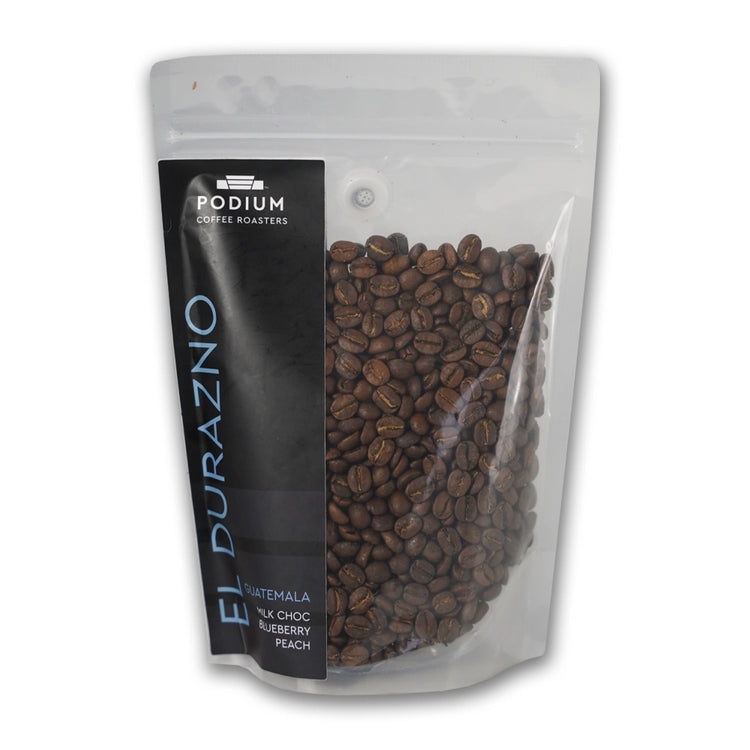
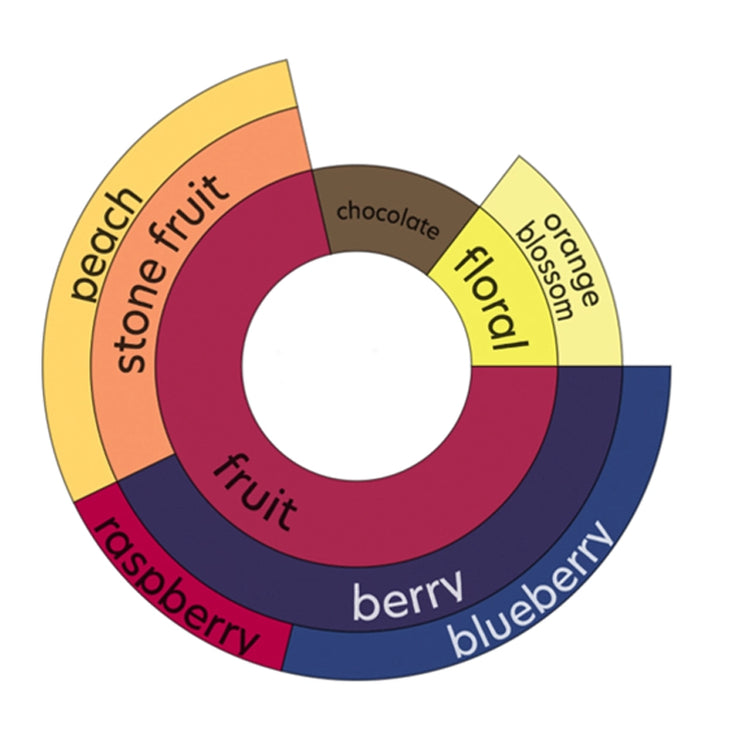
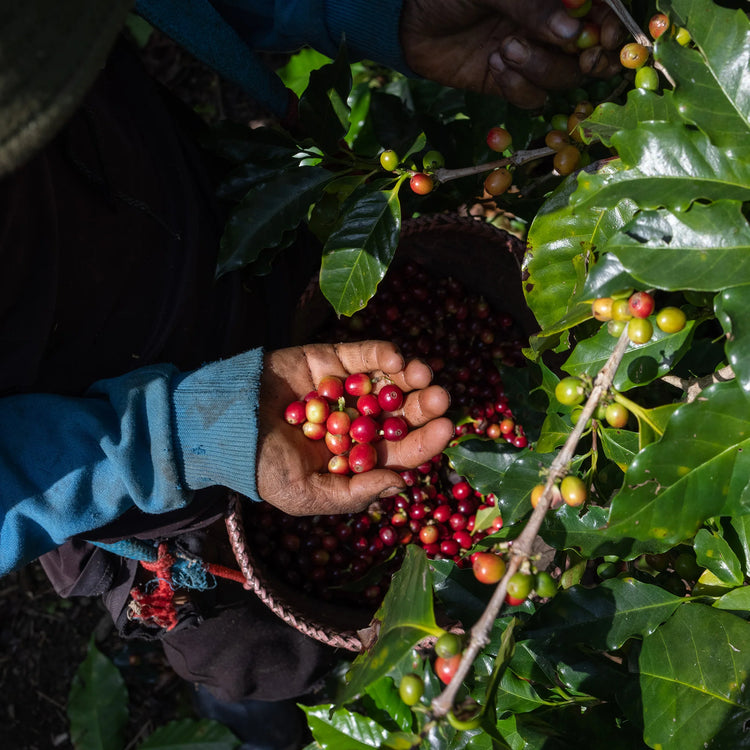
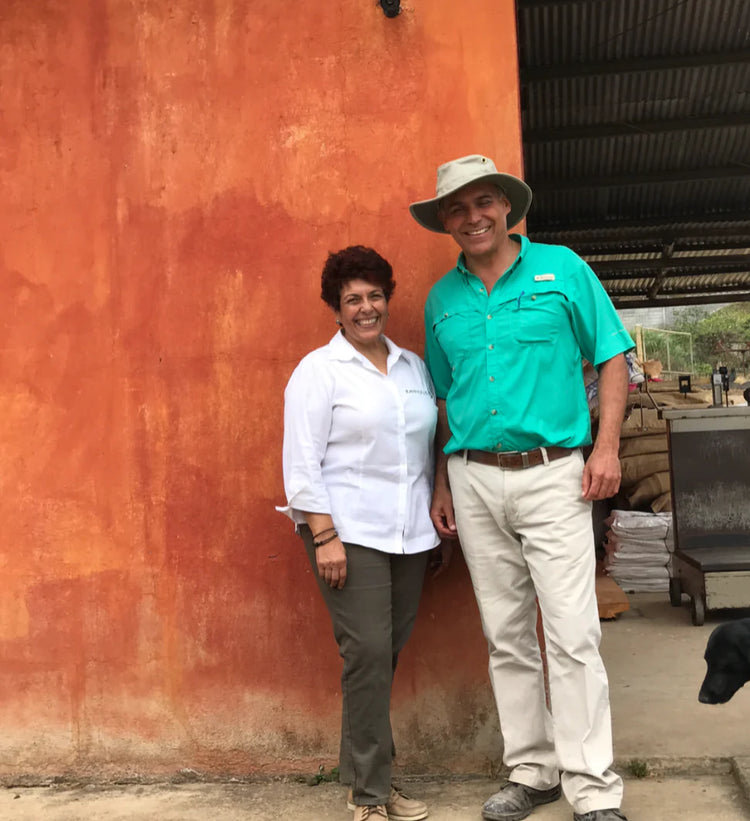
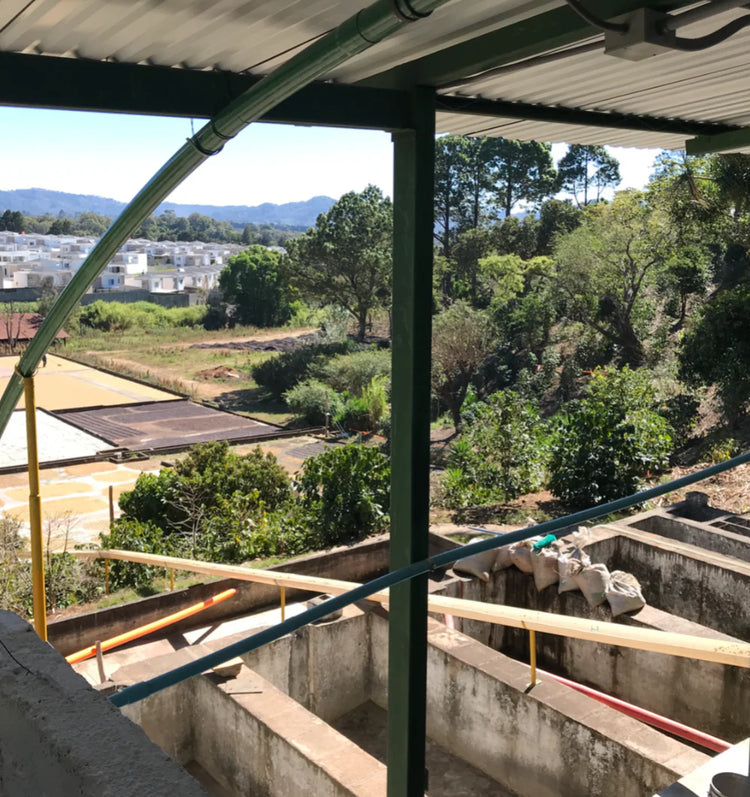
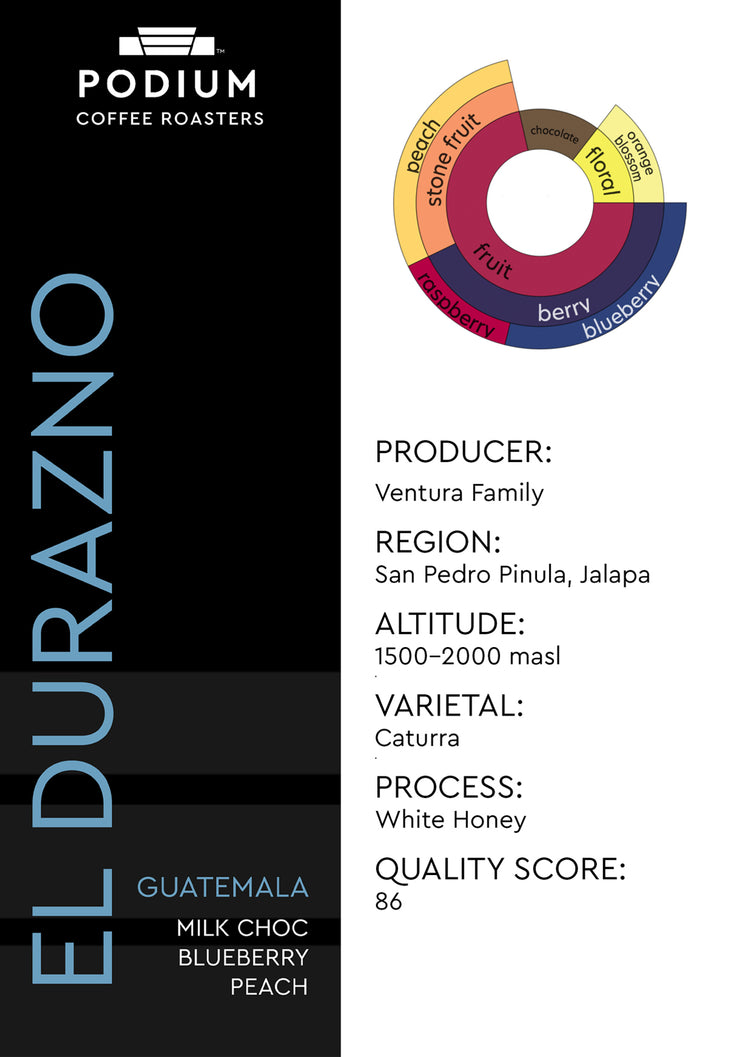
Product Information
Description
More
Less
| Producer | Rafael Ventura |
| Farm/Mill |
El Durazno
|
| Cultivar | Caturra |
| Process | White Honey |
| Location | Nuevo Oriente - Guatemala |
| Altitude |
|
| Tasting Notes |
Peach, Blueberry and Milk Chocolate |
| Q Grade |
86 points |
Origin Info
More
Less
The El Durazno farm is very young, with their first production harvest taking place in 2018. Located in Nuevo Oriente, the hand-picked and sorted coffee cherries from the farm are loaded onto trucks and taken to Finca Rabanales (our other Guatemalan coffee this
year) for processing.
Coffee from Nuevo Oriente is mostly produced in the mountainous areas, in response to an increasing global demand for specialty coffee.
This has led to regeneration and international recognition for this, one of Guatemala’s most isolated areas. This rainy and cloudy region has soil components that are quite interesting for volcanic terrain. The soil contains metamorphic rock rich in minerals and nutrients, creating ideal conditions for high quality coffee.
Honey processing is a method in which the fresh coffee cherries are
de-pulped, but allowed to dry without washing. Some of the fruit is still there, but not nearly as much as in the natural process. Most of the cherry is gone, but the remaining golden, sticky mucilage is reminiscent of honey, which is where the process gets its name.
One benefit of this for producers is that honey processing uses less water. Allowing the fruit to dry on the bean means that it can be physically removed during milling, rather than being washed off as is typical of washed coffees, this typically also leads to a sweeter more complex profile as the coffee bean absorbs some of the coffee fruits natural sweetness when drying
Sourcing
More
Less
We work with directly with Coffee Bird, a family-owned female lead importer that specialises in ethically sourced Guatemalan coffee. They are proudly transparent on their impact in the speciality coffee market, paying farmers 37% higher than the industry average in Guatemala.
Description
| Producer | Rafael Ventura |
| Farm/Mill |
El Durazno
|
| Cultivar | Caturra |
| Process | White Honey |
| Location | Nuevo Oriente - Guatemala |
| Altitude |
|
| Tasting Notes |
Peach, Blueberry and Milk Chocolate |
| Q Grade |
86 points |
Origin Info
The El Durazno farm is very young, with their first production harvest taking place in 2018. Located in Nuevo Oriente, the hand-picked and sorted coffee cherries from the farm are loaded onto trucks and taken to Finca Rabanales (our other Guatemalan coffee this
year) for processing.
Coffee from Nuevo Oriente is mostly produced in the mountainous areas, in response to an increasing global demand for specialty coffee.
This has led to regeneration and international recognition for this, one of Guatemala’s most isolated areas. This rainy and cloudy region has soil components that are quite interesting for volcanic terrain. The soil contains metamorphic rock rich in minerals and nutrients, creating ideal conditions for high quality coffee.
Honey processing is a method in which the fresh coffee cherries are
de-pulped, but allowed to dry without washing. Some of the fruit is still there, but not nearly as much as in the natural process. Most of the cherry is gone, but the remaining golden, sticky mucilage is reminiscent of honey, which is where the process gets its name.
One benefit of this for producers is that honey processing uses less water. Allowing the fruit to dry on the bean means that it can be physically removed during milling, rather than being washed off as is typical of washed coffees, this typically also leads to a sweeter more complex profile as the coffee bean absorbs some of the coffee fruits natural sweetness when drying
Sourcing
We work with directly with Coffee Bird, a family-owned female lead importer that specialises in ethically sourced Guatemalan coffee. They are proudly transparent on their impact in the speciality coffee market, paying farmers 37% higher than the industry average in Guatemala.
You May Also Like







